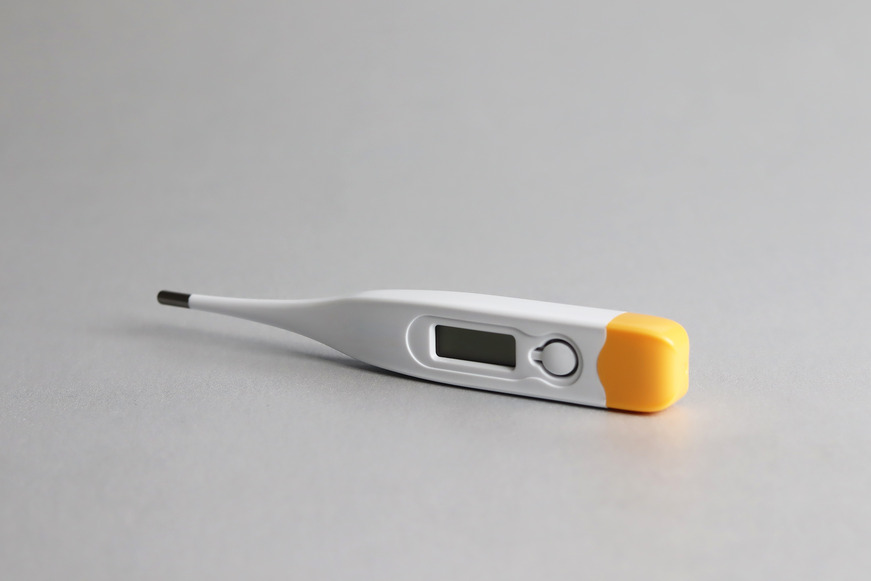Preventive Healthcare
Having Constant Body Pain & Aches? Some Health Issues You Should be Aware of
47935 Views
0

Body pain is common among human beings. It can be caused by stress, fatigue and other minor injuries. Common fever also accompanies mild body pain and headaches. Usually, it takes 4-5 days to recover from it. It is typically not serious.
However, knowing why your fever is causing body pain is important. In some cases, it may be a serious and strong symptom of flu, dengue, malaria, chikungunya or Covid-19 disease. All these diseases have common symptoms like fever, nausea, shivering and body pain. If not carefully observed, it might lead to further complications. In some cases, there are no symptoms except fever or body pain.
All of these are contagious, and it is advised to take proper preventive measures like isolation. Take common medication at home, and if the symptoms do not subside after 4 days, you may wish to consult a doctor.
Common Fever

Symptoms
Common fever symptoms often accompany headaches, body pain, nausea, shivering, vomiting and, in severe cases, diarrhoea.
It usually comes down within 3 days. However, a common fever with 101F among children should be treated as an emergency.
Causes
You experience common fever when a foreign particle enters your body, and your immune system fights back to protect you. This leads to the body temperature rising between 99F to 101F. Nevertheless, it is a good sign for your health.
Flu

Symptoms
Common symptoms of influenza or flu include fever, headache, eye pain, sore throat, cough and congestion. If you are exposed to swine flu, you might experience nausea, vomiting and diarrhoea. Flu can be dangerous depending on the virus. It has symptoms of the common cold but is much more severe than that.
Causes
Influenza or flu is a virus-borne disease caused by Influenza virus types A, B, C and D. Each type has different effects on the victims. In common cases, the patients get sick for 1-4 days and recover. However, things might turn serious for older adults and children. In most cases, people get it when they breathe in microscopic airborne droplets from the sneezes or coughs of an infected person. If you touch something that has the virus on it and then touch your nose, mouth, or eyes, you can get an infection.
Covid-19
Symptoms
Common symptoms of Covid-19 disease are fever, muscle pain, headache, sore throat, shortage of oxygen leading to difficulty breathing, cough, loss of smell and taste, runny nose, redness in eyes, and vomiting.
Not every patient shows these symptoms; some of the cases are asymptomatic. A patient diagnosed with Covid-19 disease should be isolated for at least 14 days.
Causes
Covid-19 is caused by a virus named Sars-CoV-2 or the coronavirus. It accompanies mild to high fever with extreme body pain and in some cases, depending on the variant, can be life-threatening.
Dengue, Chikungunya and Malaria
Symptoms
Symptoms of all three mosquito-borne diseases show similar symptoms of mild to high fever, severe joint pain and headache accompanied by vomiting and diarrhoea. Malaria fever furthermore shows symptoms like coughing and chilling.
Causes
Dengue and chikungunya are caused by viruses and are spread by the Aedes mosquito. At the same time, malaria is a disease caused by the parasite in the Anopheles mosquito. These diseases can be life-threatening if you have a poor immune system.
When Should You Be Serious?
- High Fever and Body Pain: If your fever doesn’t come down after 3 days, you experience an increase in severe body pain and headache.
- Constant Vomiting: Vomiting blood is not a good sign. It is recommended that you consult a doctor.
- Reduced Level of Oxygen: Shortage of breath along with high fever and body pain is a severe symptom of Covid-19 disease and should be treated immediately.
Important Tests
- Common fever does not require any special tests.
- However, Fever Profile blood tests are required to determine if you have flu or influenza.
- Mosquito-borne diseases like dengue, malaria and chikungunya are detected through blood tests.
- Covid-19 is checked through swab samples and blood tests.
Tests should be conducted in licensed pathology labs as prescribed by your doctor. Tests may vary based on the nature of the symptoms.
Diagnosis and Medication
- Normally, a doctor will prescribe fever-reducing medicines for common fever.
- You will be asked to take complete rest in an isolated room so that it doesn’t spread among others.
- In other cases, the doctor will change your medication after all the tests and continue the diagnosis accordingly.
- You will be admitted to a hospital if the doctor feels it necessary.
Conclusion
Different new viruses are exposing the world to newer diseases. Carelessness may lead to serious consequences. You should visit a doctor if you experience severe body pain with a high fever even after 3 days. However, do not panic. Metropolis Healthcare is a leading lab that collects samples from your home as per requirements. You will receive a report online within 24 hours. The lab meets all the needed protocols. The company has a team of 200 major pathologists with 2000+ technicians to provide diagnostic solutions.













1701259759.webp)









 WhatsApp
WhatsApp